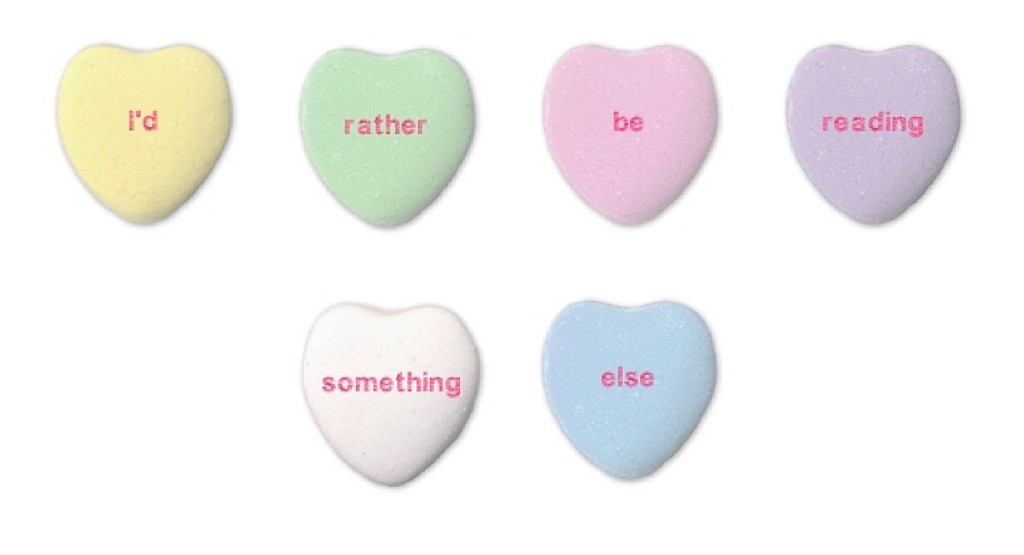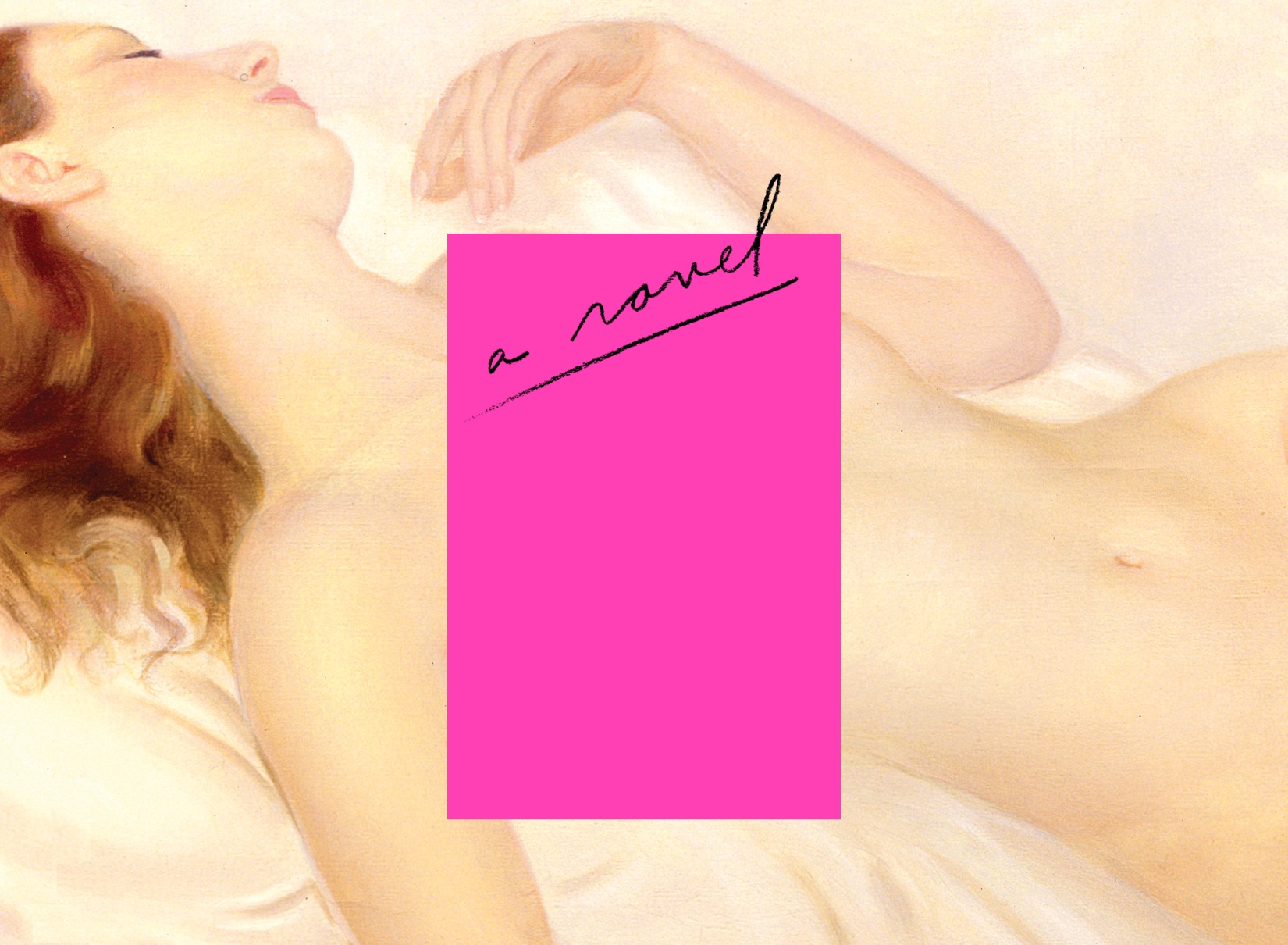Books & Culture
We Need More Books Without Romance
Why it’s so hard to find fiction that doesn’t focus on love and sex—and why that’s a problem

The genius of the Bechdel test is that it doesn’t sound like a challenge. How difficult can it be to write a movie with two named female characters who talk to each other, just once, about something that isn’t a man? Clearly, though, it’s more rare than it sounds. You really have to think to come up with examples of movies that pass the test — and it’s only when we’re forced to provide them that we realize it shouldn’t be this hard.
Such was my experience brainstorming novels without romantic subplots. In January, “Tired Asexual” wrote to Slate advice columnist Dear Prudence, looking for suggestions of books that didn’t include the pursuit of romance. Helpful readers responded with a short list, many from young-adult fiction, but, surely, the list of eligible novels had to be much longer.
For my own test, I developed the following criteria:
- The novel is not young adult fiction or science-fiction/fantasy. (There are plenty of YA books without romantic subplots, both because intended readers are younger and because recent YA authors are more likely to incorporate characters along the sexuality spectrum.)
- The novel is not “about” romance, and romance — or yearning for romance — isn’t a major plot point even if it’s there. So, maybe there’s a couple, but their relationship is taken for granted and the book doesn’t focus on its evolution. Maybe someone goes on a date, but dating doesn’t move the story forward.
- The novel has no explicit sex scenes or sexual themes (including sexual assault, even if it’s not described).
- The novel doesn’t present romantic love as necessary and central to flourishing. This last requirement is crucial. Even if there are no sex scenes and nobody goes on a date, if the main character is constantly thinking about how he should be dating or what a loser he is without a romantic partner, the novel is disqualified.
Go ahead, see what you come up with.
I, like the reader who wrote to Dear Prudence, identify as asexual, often abbreviated as “ace.” (I’m also writing a book about asexuality). Aces often split sexual and romantic attraction — so you can be ace and still be romantically attracted to, and desire romance and relationships with, people of various genders. Those who don’t experience romantic attraction to any gender identify as aromantic. (To be clear, not all aces are aromantic, and not all aromantics are ace.)
It’s easy to understand why it would be frustrating for someone who is aromantic to constantly read books implying that life is pathetic without romance. But in fact, this state of affairs is harmful no matter how you identify. If we believe that cultural representation matters when it comes to class and race and gender and sexual minorities, we must believe that representation also matters when it comes to storylines — the narratives we tell about what matters, what we want and should want, and what is necessary for a flourishing life.
Representation matters when it comes to storylines — the narratives we tell about what matters, what we want and should want, and what is necessary for a flourishing life.
Even for those who long for romance and enjoy love stories, being steeped in this culture narrows our lives. The scholar Elizabeth Brake calls this privileging of romantic love “amatonormativity”; in her book Minimizing Marriage, she investigates the ways we prioritize romantic relationships over friendship even though friendship can be more nourishing, and infantilize those who fail to achieve coupledom.
Take, for instance, Hunter (not his real name), an asexual man I interviewed for my book. At age 35, Hunter has been married for 11 years, yet only realized that he was ace six months ago. He grew up in a very conservative, evangelical Christian environment, where casual sex wasn’t considered “cool” or liberating. But even as he followed the religious narrative that emphasized chastity, he found himself believing in a parallel narrative, a secular one that taught that losing your virginity marks you as a true adult.
When Hunter came out to a close friend, the friend asked how he could be asexual when once, years ago, he had discussed wanting to have sex. “That comment stumped me, until I realized that — and it’s embarrassing to admit — this comment he referred to was me talking about the movie American Pie,” he says. “When I first saw it years and years ago, it made me want to have sex on this intellectual level. The kid was a loser and then he became the hero of the story, and that’s what I wanted: to be a hero.”
When we remain unaware of how deeply steeped we are in romantic plots, we don’t realize how much of our desires come from social scripts.
Culture may not necessarily create desires for the things it valorizes — sex, romance, money, status — but having a single story about what these desires signify and bring can amplify them and make them seem necessary. If the vast majority of stories posit sexually active people as heroes, love as the ultimate goal, and unpartnered people as losers, you’re less likely to think outside those narrow lanes — or even notice how you’re being corralled. When we remain unaware of how deeply steeped we are in romantic plots, we don’t realize how much of our desires come from social scripts, how we’re limiting ourselves without knowing it.
I am not aromantic; in fact, I crave romantic drama, the more dramatic the better. Recently, I confided to my friend Betsy my fear that this craving would ruin my life. Either I would give in to the desire and complicate my relationship for no good reason, I told her, or, more likely, I would not give in and eventually feel bored and miss the intensity of romantic intrigue. That intensity was exactly why I sought love stories, and believed that a novel that lacked them was boring. Love stories are thrilling; they almost always invoke the big emotions that I have long believed give life its meaning.
This framing, said Betsy, was simply a failure of imagination. Yes, I wanted romantic drama, but I wanted it because I wanted emotion and intensity and purpose and desire. Was romantic drama the only way to get that? she asked.
It’s a shortcut and a template, that’s for sure. It may even be the easiest way, both in fiction and in life. But the lack of dramatic stories without romance had taught me that it was the only way to access intensity. Hunter wanted to feel like a hero, and he was told that the easiest way to become one would be to have sex. I want to feel deeply, and the story I see all around is that the way to do so is to stir up romantic drama by creating a crucible for my own mixed emotions.
The lack of dramatic stories without romance had taught me that it was the only way to access intensity.
“I hate that friendship is so devalued in this culture,” says Lauren Jankowski, a Chicago-based fantasy writer who identifies as both asexual and aromantic. Jankowski is the founder of Asexual Artists and her stories, even when they don’t have ace protagonists, rarely focus on romance. “Why can’t we just have more narratives where you find two best friends fighting for each other and to protect each other, or a group of friends going off on adventures?” she asks. “People think, unless you’re attracted to somebody, why would that be a story? Well, because it’s fucking interesting.”
The ubiquity of romantic subplots — even in books that aren’t romance novels — suggest that the only stories that can involve big emotions are romantic, that romance is automatically more interesting than almost all of the other strands of human experience. What if books focused more on the emotions that you could get from friendship, ambition, family, self?
There are, of course, books that meet the criteria of my test. Philosophical novels like Albert Camus’ The Stranger and The Plague and many works of Knut Hamsun fit within the parameters, as do surrealist novels from Borges, Calvino, Markson. Other tricks are to think about novels without women, or religious novels.
Historical and family stories are also a good bet: Per Petterson’s Out Stealing Horses and Harry Mulisch’s The Assault deal with complicated family dynamics during World War II. More contemporary selections include Marilynne Robinson’s Housekeeping; Catherine Chung’s Forgotten Country, about family secrets, the Koreas, and immigrant experience; Chaim Potok’s My Name is Asher Lev about individual desire versus community expectation. The story that has moved me most in recent months — Duncan Macmillan’s play “People, Places, and Things” — chronicles an actress’ repeated attempts at rehab. Cormac McCarthy’s The Road is bleak and dystopian; in that universe, the most important love is between a father and a son.
The catch is that almost all these selections fit into a secondary genre. All are acclaimed and considered “literary,” but they’re also usually described as philosophical novels, or Holocaust novels, or immigrant novels; they’re always pegged to something else. You need always to be looking for something that makes the novel “other.” At the core, as one friend pointed out, the nuclear family and romantic love are key parts of the genre that we declare “serious literary fiction” without needing to add another descriptor.
Romance is so taken for granted we often don’t register it, the way we rarely register if all the characters in a novel are white.
In fact, some of the books I mentioned may still feature romance; because I lack the time to re-read them, I fully expect to discover that some include a romantic subplot or fail my criteria in some way. Others who helped me brainstorm encountered the same problem. Again and again, friends would respond with a suggestion, only to see someone else chime in and point out that, actually, Watership Down and East of Eden do have romantic and sexual themes, you just forgot. Romance is so taken for granted we often don’t register it, the way we rarely register if all the characters in a novel are white. The hegemony of this message affects our values and our hopes, all while fading so cleanly into the background that it’s barely even evident.
It is so easy to go this route. Romantic plotlines are so automatic a source of tension, and to look elsewhere takes deliberate choice. My longing for stories about cruel betrayals or sudden reunions remains, but I now try to turn away as much as possible. It is time to retrain myself, to investigate all the other ways of leading a rich, intense life, to use my choice of literature as a lesson in endless stories and endless possibilities.








